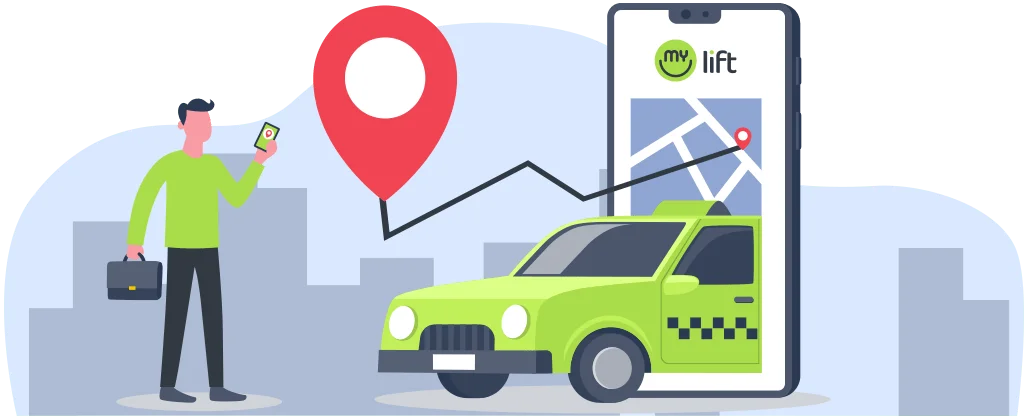Taxi Hire Vs. Private Hire: What Are The Differences?

When it comes to hiring transportation services, the terms “taxi hire” and “private hire” are often used interchangeably, leading to confusion about the distinctions between the two.
Understanding the differences between these two types of services is crucial for making informed decisions when seeking reliable and convenient transportation.
In this comprehensive guide, we will explore the disparities between taxi hire and private hire services, shedding light on their unique features, advantages, and limitations.
What Is Taxi Hire?
Definition and Characteristics
Taxi hire, also known as public hire, refers to the service of hiring a taxi (or cab) that is legally licensed to pick up passengers without pre-booking.
Taxis are typically identified by illuminated rooftop signs and are readily available for passengers to hail on the street or at designated taxi stands.
These vehicles are authorized to use taxi ranks, dedicated lanes, and public areas for picking up and dropping off passengers.
Regulation and Licensing
Taxis are subject to strict regulations imposed by local transport authorities or councils to ensure passenger safety and service standards. Taxi drivers are required to obtain specific licenses and undergo background checks to ensure their competence and trustworthiness.
The vehicles themselves are also subject to regular inspections to ensure they meet safety and quality standards.
Flexibility and Convenience
One of the key advantages of taxi hire is its availability and flexibility. Taxis are easily accessible and can be hailed on the spot, providing a convenient and on-demand transportation option for passengers. This makes taxis a popular choice for short-distance trips, airport transfers, and situations where immediate transportation is needed.
Fare Structure
Taxis generally operate on a metered fare system, where the cost of the journey is determined by the distance traveled and the duration of the trip. This fare structure provides transparency and ensures that passengers are charged based on the actual distance and time taken for the journey.
What Is Private Hire?
Definition and Characteristics
Private hire, also known as pre-booked hire or minicab hire, involves the advance booking of a vehicle for private transportation services.
Unlike taxis, private hire vehicles cannot be hailed on the street and can only pick up passengers who have pre-arranged their journeys through a licensed private hire operator.
Private hire services are typically provided by a diverse range of vehicles, including sedans, minivans, and executive cars.
Regulation and Licensing
Private hire operators and drivers are also subject to regulatory oversight by local authorities, ensuring compliance with licensing requirements and safety standards.
These regulations aim to safeguard the interests of passengers and maintain service quality within the private hire industry.
Advance Booking and Prearranged Services
One of the defining characteristics of private hire is the need for booking. Passengers must schedule their journeys through a licensed private hire operator, either by phone, app, or online booking platform.
This prearrangement allows for personalized services, including tailored pickup times and specific vehicle preferences.
Fixed Fares and Quotations
Private hire services often operate on a fixed fare or quotation basis, where the cost of the journey is determined and agreed upon at the time of booking. This provides passengers with clarity regarding the pricing and eliminates any uncertainties about the final fare.
Key Differences Between Taxi Hire and Private Hire
- Booking Process: Taxi hire allows for immediate pickup without pre-booking, while private hire requires advance reservation through a licensed operator.
- Vehicle Identification: Taxis are typically marked by illuminated rooftop signs, while private hire vehicles do not display such identifiers as they cannot be hailed on the street.
- Fare Structure: Taxis usually use a metered fare system, whereas private hire services often offer fixed fares or quotations for prearranged journeys.
- Accessibility: Taxis are readily available for spontaneous trips, while private hire vehicles cater to pre-planned journeys that have been booked in advance.
- Regulatory Compliance: Both taxi hire and private hire services are subject to regulation, including licensing requirements for drivers and vehicles, as well as safety and quality standards.
Considerations for Passengers
Understanding the differences between taxi hire and private hire services is essential for passengers when selecting the most suitable transportation option for their needs. Consider the following factors when making a decision:
- Immediate Need: For spontaneous travel requirements or short-distance trips, taxi hire may offer greater convenience due to its immediate availability.
- Prearranged Journeys: For journeys that require specific pickup times and personalized services, private hire may be the preferred choice, as it allows for booking and tailored arrangements.
- Fare Transparency: Depending on personal preferences and budget considerations, passengers may choose between metered fares (taxi hire) and fixed fares/quotations (private hire) based on their preference for fare transparency.
To Sum It Up
In conclusion, while both taxi hire and private hire services offer essential transportation solutions, their operational models, booking processes, and service features cater to distinct passenger needs and preferences.
By understanding the differences between these two modes of transportation, passengers can make informed decisions and select the most appropriate service for their travel requirements.
Whether it’s the immediate availability of taxis for spontaneous trips or the personalized prearranged services offered by private hire operators, passengers have a range of options to suit their specific travel needs.

